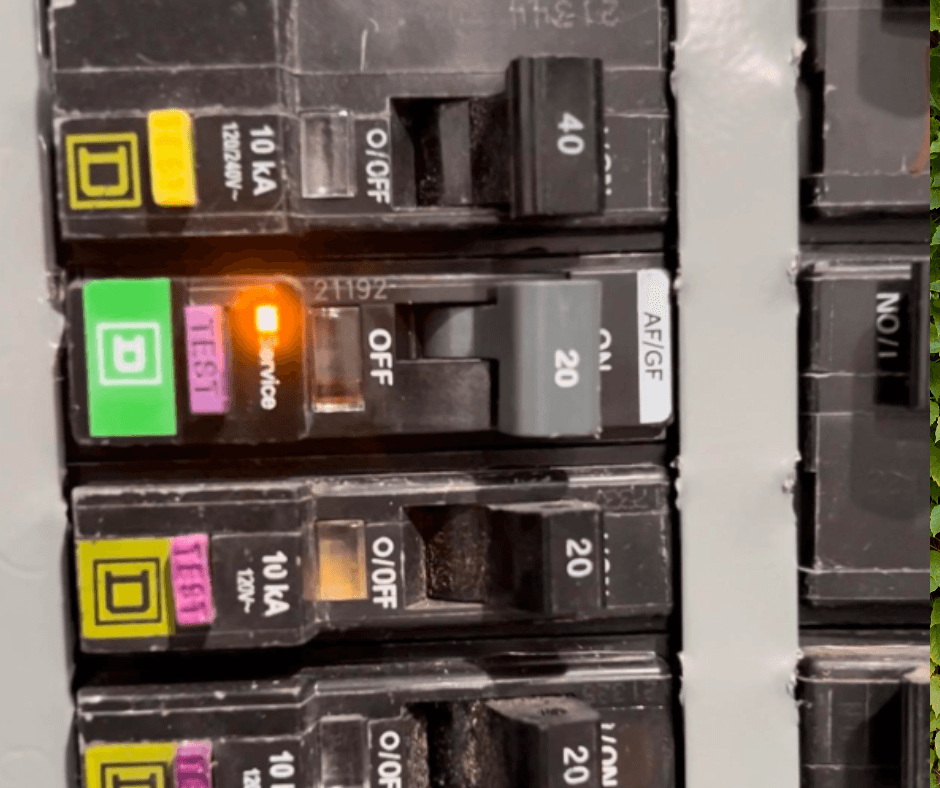Dec 20, 2024

Have you ever noticed your circuit breaker blinking or flashing lights? This puzzling situation can be concerning. Understanding what a flashing breaker means is essential for keeping your home safe and fully functional. Whether you are a curious homeowner or a DIY enthusiast, this post will clarify the possible reasons behind that blinking indicator and what action you can take.
Understanding Circuit Breaker Basics
Circuit breakers are crucial for your home's electrical system. They act as safety devices that protect against electrical overloads. When there is a fault in the circuit, the breaker pauses the flow of electricity, which protects your devices and reduces the risk of electrical fires.
A functioning circuit breaker typically stays in a steady position. However, when there’s a problem, the breaker may signal that it needs attention. That's when a flashing light comes into play.
Common Reasons for a Flashing Breaker
1. Overload Conditions
One of the most common reasons for a flashing circuit breaker is an overload. This happens when the circuit carries more current than it is rated for. According to the National Fire Protection Association (NFPA), nearly 47,000 home fires each year result from electrical failures or malfunctions.
For example, if you have several devices like microwaves, toasters, and hair dryers plugged into one circuit, you might exceed the capacity, causing the breaker to flash. A good rule of thumb is to avoid using high-wattage devices on the same breaker.
2. Short Circuits
A short circuit is a serious issue that can cause a breaker to flash. This takes place when a hot wire touches a neutral wire, creating a sudden spike in electricity. In fact, the Electrical Safety Foundation International (ESFI) notes that short circuits are one of the leading causes of electrical fires in homes.
If you suspect a short circuit, turn off the breaker immediately and contact a licensed electrician. They will assess your wiring and address the issue, ensuring safety for your home.
3. Ground Faults
Ground faults can also lead to a flashing breaker. This situation arises when a hot wire connects with a ground wire or the ground itself. Ground faults can be especially dangerous and may lead to electric shocks or fires. When in doubt, get in touch with a qualified electrician who can quickly remedy the situation.
4. Faulty Breaker
Sometimes the problem does not lie with the electrical system but rather with a faulty breaker. Breakers can wear out over time. If your breaker continuously flashes without any apparent cause after you've checked all the possibilities, it may be time for a replacement.
Investing in a new circuit breaker not only eliminates erratic behavior but also helps maintain a safe environment in your home.
5. Loose Wiring Connections
Loose connections within a circuit can trigger a flashing breaker. Over time, factors such as vibration and heat can loosen these connections, leading to intermittent contact.
If you're comfortable with basic electrical tasks, check the connections to ensure everything is secure. If you're unsure, it’s best to consult a professional who can safely address the issue.
When to Seek Professional Help
While some issues might seem manageable, there are moments that clearly require expert help. Here are some situations when you should call in an electrician:
You've attempted to address overloads, but the breaker keeps flashing.
There are signs of a possible short circuit or ground fault, but you can't identify the problem.
You detect burning smells or notice scorch marks around the breaker panel.
You experience strange fluctuations in your electrical system or other anomalies happening.
Preventive Measures for Your Electrical System
Preventing issues with your electrical system is vital. Here are a few strategies to minimize the risk of a flashing breaker:
Regular Inspections: Schedule routine checks with a qualified electrician to spot potential issues early on.
Balance Electrical Loads: Be mindful of how you distribute your electrical load across different circuits.
Utilize GFCI Outlets: Install Ground Fault Circuit Interrupter (GFCI) outlets, particularly in areas where moisture is present, such as kitchens and bathrooms.
Educate Your Household: Ensure that everyone understands the basics of electrical safety and what signs to watch out for.
Staying Safe and Informed
Although a flashing breaker can be alarming, knowing its potential causes equips you to take proactive safety measures. From managing electrical loads to identifying the signs of faults, being informed is your best defense against electrical hazards.
Maintaining a vigilant approach to your electrical system is not only crucial for safety but also extends the lifespan of your devices. Next time you notice that annoying flashing light, remember that knowledge is power. Take the necessary steps to keep your home safe.
